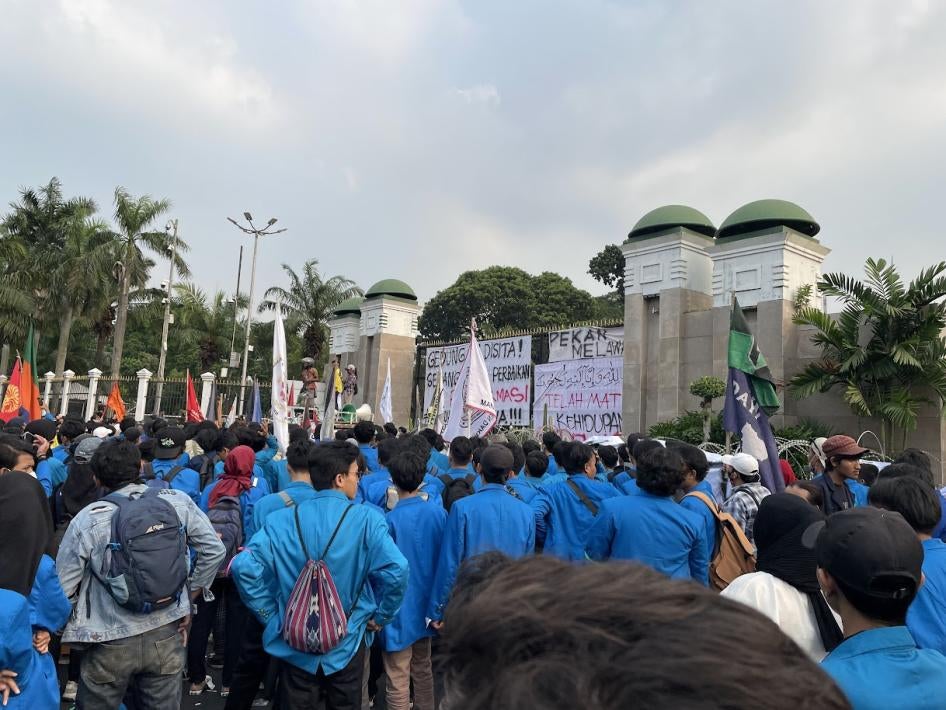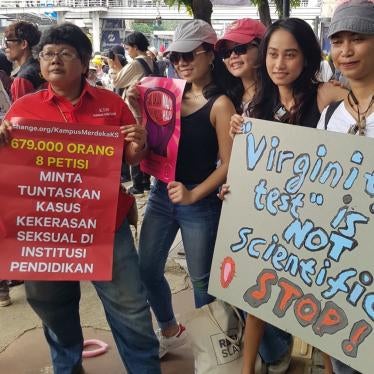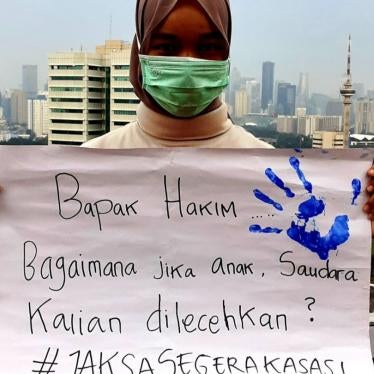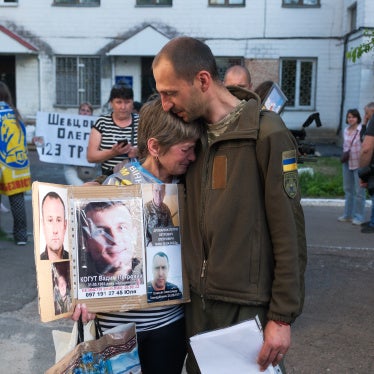(Jakarta) – The Indonesian government should release the latest draft of the proposed criminal code to ensure a full and informed public discussion of its provisions, Human Rights Watch said today. A 2019 version of the draft law raises grave concerns that its provisions could violate the rights of women, religious minorities, and lesbian, gay, bisexual and transgender (LGBT) people, as well as rights to freedom of speech and association.
In June 2022, the deputy law and human rights minister in charge of the criminal code negotiations with the parliament, Edward Omar Sharif Hiariej, refused to release the draft, contending that it might create “unrest.” Yet he said that the government plans to pass the revised code, which has been under review for more than two decades, before national Independence Day on August 17.
“Ensuring that Indonesia’s long-awaited revised criminal code respects the rights and freedoms of all Indonesians means providing a reasonable opportunity for everyone to discuss and debate its provisions,” said Phil Robertson, deputy Asia director at Human Rights Watch. “The government should immediately release the latest text of the draft code and arrange sessions for public participation.”
Government outreach efforts to the general public have been totally inadequate, Human Rights Watch said. At a May 25 parliamentary commission hearing on law and human rights, Hiariej discussed the “socialization program” that his ministry has been conducting to decrease possible opposition to the bill. At a subsequent parliamentary hearing on July 6, he claimed to have held “public consultation meetings in 12 cities” with civil society organizations. These sessions consisted of PowerPoint presentations explaining the draft law, but the text of the law itself was not shared with the participants.
On June 9, an alliance of 82 civil society groups led by the Indonesian Legal Aid Foundation (Yayasan Lembaga Bantuan Hukum Indonesia) called on President Joko “Jokowi” Widodo and the parliament to share the draft criminal code. On June 23, the National Alliance on Criminal Code Reform published comments on 24 problematic issues in the bill based on Hiariej’s presentations.
Beginning on June 28, student organizations in Jakarta protested against the secrecy of the bill’s deliberations and raised concerns that the law might undermine the protection of democracy and human rights in Indonesia.
Concern thus far has focused on the draft criminal code’s recognition of “any living law” in Indonesia. These “living laws” could be interpreted to include hukum adat (customary criminal law) and Sharia (Islamic law) regulations at the local level. Indonesia has hundreds of ordinances and regulations that discriminate against women, religious minorities, and LGBT people. As there is no official list of “living laws” in Indonesia, this provision could be used to prosecute people under these discriminatory regulations.
Indonesia’s criminal code dates back to the Dutch colonial era. In September 2019, a parliamentary task force finalized a 628-article bill and planned to pass the bill during the plenary session of the House of Representatives. But massive street protests against the law in Jakarta and more than 40 other cities nationwide prompted President Jokowi to delay its passage.
A detailed Human Rights Watch analysis of the 2019 draft law found provisions that would discriminate against non-Muslims, including religious minorities, as well as non-Sunni Muslims. The draft also contained provisions that discriminate against women and girls, and LGBT people. Provisions also violated core human rights recognized under international law, including freedom of expression, speech, and association.
The 2019 draft law also contained provisions that effectively censor the dissemination of information about contraception and criminalize some abortions, thereby setting back women and girls’ rights under international law to make their own choices about having children. Another article punishes extramarital sex with up to a year in prison, stating that couples who live together without being legally married face prison terms. Sex workers could also be criminally prosecuted under this provision.
While the 2019 provision did not specifically mention same-sex conduct, since same-sex relationships are not legally recognized in Indonesia, the article effectively makes all same-sex conduct a criminal offense.
The 2019 draft law also proposed to expand Indonesia’s 1965 blasphemy provision to include “persuading someone to be a non-believer.” The parliament should remove blasphemy offenses, which are contrary to Indonesia’s obligations under the International Covenant on Civil and Political Rights, Human Rights Watch said.
“The Indonesian government should not rush consideration on such a truly momentous law, which will profoundly impact so many people’s lives,” Robertson said. “Pursuing a path of transparency, consultation, and participation, with importance given to Indonesia’s international human rights obligations is the best way to ensure the new law works for the people rather than to repress them.”








